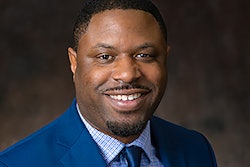As educators who work to prepare teachers, particularly for urban schools, we believe that pre-service teachers’ earliest field experiences in classrooms have a profound influence on their professional trajectories. We’ve seen pre-service teachers respond to urban field experiences in a variety of ways. We’ve seen some develop a visceral commitment to educational justice in city schools, and we’ve seen others solidify their existing stereotypes about “other people’s children.” Consequently, as we approached the Philadelphia Urban Seminar this year, we wondered how we could partner across our respective institutions—Emery at Lincoln University, a minority serving institution, and Lynnette at The College of New Jersey, a predominantly White institution—to create a healthy field experience for our pre-service teachers.
The Philadelphia Urban Seminar (https://www.trafford.com/BookStore/BookDetails/198247-our-stories-in-philadelphia) is a two-week immersion field experience where pre-service teachers from 16 different universities live in north Philadelphia and work, teach and serve in an urban school. For 18 years, the purpose of the program has been to provide an urban experience to White, rural pre-service teachers who may not otherwise have the opportunity to step foot in an urban setting. Of course, Urban Seminar participants are not entirely White. Lincoln University brings students of color, and a few other institutions occasionally add to this mix, too. Ideally, we partnered across our institutions in order to get to the core of what we both believe: that friendships and personal interactions across differences enable deeper levels of contemplation, challenge, and realization about individual and structural privilege/oppression.
Logistically, during the Urban Seminar, this meant three things: First, we ran each class period and formal debrief session as one, essentially imposing a co-teaching model on the program regardless of any existing divisions. Second, we ran all non-academic parts of the program together, whether it was trip to the historic National Constitution Center in downtown Philadelphia, our Saturday cookout, or a late night run to Rita’s water ice (a Philly classic!). Perhaps, most important, we paired students across our institutions for an ongoing partner, cross-race and cross-institution dialogue activity. During these 30-minute sessions, oftentimes over meals, the pre-service teachers followed a conversation framework that we created to help them reflect with one another about their points of entry to urban teaching and the personal-professional implications of what was happening in their respective field experience during the Urban Seminar.
Below are three of the many benefits we saw happening from this unofficial cross-institution partnership in urban teacher education.
1. Over one of the weekends, we held a cookout for our students at Lynnette’s house and invited some of the previous Urban Seminar students from LU. This invitation of past and current Urban Seminar participants was to further bridge social networks, while also deepening the levels of interaction. In the midst of eating potato salad and barbecued chicken, we took some time for the group to discuss their experiences in the Urban Seminar so far with the alumni. One of the LU alumni mentioned a moment in the Urban Seminar the previous year when a Philadelphia school district teacher—perhaps not realizing that some people in the room (including Lynnette and the student) indeed lived in north Philadelphia—called the area a “dirty place” and advised not living there. Upon hearing this story, two of the TCNJ students started asking honest questions to the LU alumni about how to teach across racial differences in the city and what kinds of issues a White person should be mindful of. Rather than assuming that the desire to teach in an urban area equated knowing how, they acknowledged their position and sought direction. The casual yet intentional atmosphere of the cookout created an opportunity for these pre-service teachers to discuss race in the classroom and learn from each other’s perspectives.
2. These relationships between the LU and TCNJ pre-service teachers also started giving White pre-service teachers an experiential framework to challenge other White pre-service teachers about racism. This became evident during a diversity and anti-bias professional workshop toward the end of the Urban Seminar. Four of the TCNJ pre-service teachers were sitting at a table with a group of White pre-service teachers from another institution. During a small group discussion, the TCNJ pre-service teachers mentioned the LU/TCNJ partnership and what it had taught them about diversity in the public school classroom. The pre-service teachers from another institution explained that this was not a valid connection because LU pre-service teachers were “not really Black but White on the inside” because “they talk like us.” The TCNJ pre-service teachers challenged these deeply problematic claims of their White peers by citing that some of the LU students grew up in the very same neighborhoods as the students in the schools. In fact, some LU students had given TCNJ students tours of these neighborhoods and the larger city that very week. Prior to the LU/TCNJ partnership, we are not sure the TCNJ group would have had this kind of experiential framework to challenge other White peers in these ways.
3. Urban seminar also created the opportunity for pre-service teachers of color to be experts of their own experience. While this might seem like a given, books, articles, rumor and innuendo usually mediate “the real” when it comes to urban schools in teacher education. Not all of the LU pre-service teachers were from Philadelphia, but some of the ones who were served as the resident experts to acculturate other pre-service teacher who were from different places. Whether it was navigating public transportation, translating local terminology or giving the counter-narratives of their own schooling experience, pre-service teachers from Philadelphia used their own knowledge to scaffold the learning of others.
Dr. Lynnette Mawhinney is a co-author of this blog. Mawhinney is an assistant professor of urban education at The College of New Jersey.
Dr. Emery Petchauer is an assistant professor of education at Lincoln University in Pennsylvania. He is the author of Hip-Hop Culture in College Students’ Lives: Elements, Embodiment, and Higher Edutainment (Routledge Press).















